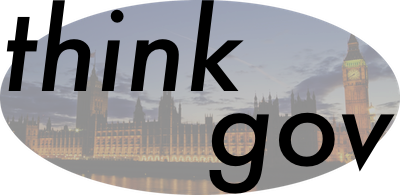A framework agreement is shorthand for a ‘pre-competed supplier list which complies with European Union law’. Buyers use the framework to place an order with a supplier on the list or to ask suppliers on the list to bid. Even where there is a bid, frameworks are much cheaper and faster than open competitions as there is:
- no need to cover anything included in the competition to get on the framework, and
- there is normally a pre-agreed standard contract.
There are lots of different frameworks, some, e.g. Catalist is applicable to the whole public sector, others to sectors, for example, Defence or Health and some to individual organisations. There have been many attempts to reduce the number of framework contracts as the cost of being on them all is prohibitive for even the largest organisations. This can be to your advantage as frameworks put in place by one organisation can often be used widely across the public sector. It’s often worth checking where a framework you are on can legally be used and persuading potential buyers to make use of it. Knowledge about frameworks is not evenly spread and buyer’s policies on which frameworks they will use can be confusing.
Contracting organisations, for example Buying Solutions, may charge a fee to users of the framework contract and will therefore be keen for it to be used. It’s reasonable in such situations for you to ask the framework owner to explain to a potential buyer the advantages, legalities and processes involved in contracting via the framework. Such an explanation is usually much more convincing than when coming from a potential supplier.
Many organisations, particularly smaller ones already on frameworks, will be prepared to subcontract work to others. So if you are creating a need its worth asking which frameworks the buyer feels comfortable using and exploring whether you can subcontract to someone already on it. This leads neatly onto “Working with others”.
A framework agreement is shorthand for a ‘pre-competed supplier list which complies with European Union law’. Buyers use the framework to place an order with a supplier on the list or to ask suppliers on the list to bid. Even where there is a bid, frameworks are much cheaper and faster than open competitions as there is:
- no need to cover anything included in the competition to get on the framework, and
- there is normally a pre-agreed standard contract.
There are lots of different frameworks, some, e.g. Catalist is applicable to the whole public sector, others to sectors, for example, Defence or Health and some to individual organisations. There have been many attempts to reduce the number of framework contracts as the cost of being on them all is prohibitive for even the largest organisations. This can be to your advantage as frameworks put in place by one organisation can often be used widely across the public sector. It’s often worth checking where a framework you are on can legally be used and persuading potential buyers to make use of it. Knowledge about frameworks is not evenly spread and buyer’s policies on which frameworks they will use can be confusing.
Contracting organisations, for example Buying Solutions, may charge a fee to users of the framework contract and will therefore be keen for it to be used. It’s reasonable in such situations for you to ask the framework owner to explain to a potential buyer the advantages, legalities and processes involved in contracting via the framework. Such an explanation is usually much more convincing than when coming from a potential supplier.
Many organisations, particularly smaller ones already on frameworks, will be prepared to subcontract work to others. So if you are creating a need its worth asking which frameworks the buyer feels comfortable using and exploring whether you can subcontract to someone already on it. This leads neatly onto “Working with others”.
